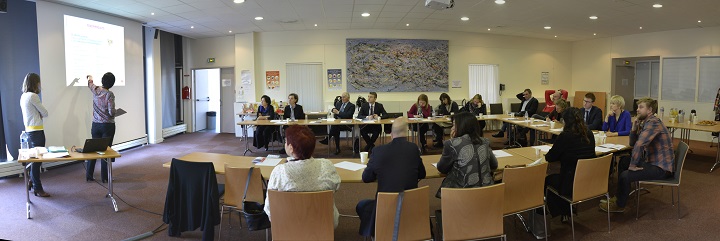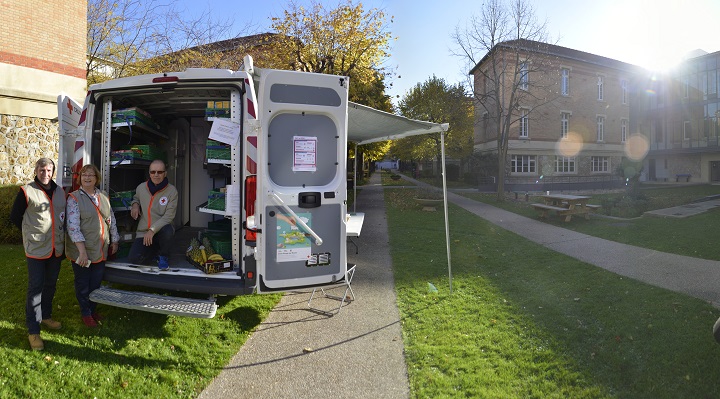Eighth FEAD Network Meeting: Exploring the many faces of FEAD
The eighth meeting of the Fund for European Aid to the Most Deprived (FEAD) Network took place in Paris on 13-14 November. Organised by the four FEAD implementing partners in France – Secours Populaire francais, Restos du Coeur, the French Federation of Food Banks, and the French Red Cross – together with the French FEAD managing authority, the Ministry of Social Affairs and Health, the meeting gathered around 100 representatives from around Europe, including from the European Commission, other national managing authorities, and implementing partners such as the Bulgarian Red Cross and the Croatian Red Cross. The objective of the meeting was to reflect on the “many faces” of FEAD by providing an opportunity to visit different local projects in Paris, share good practices and experiences, and discuss what the FEAD programme could look like after 2020.

During the opening discussion, French implementing partners agreed that FEAD is much more than food aid. It acts as a gateway to social inclusion by delivering information on how to access services, or by providing educational assistance, and support with housing and employment issues. “The faces of poverty are changing; more and more families with children, single parents, and migrants are affected. However, the main needs have stayed the same: food and to be listened to, to be acknowledged as a person,” stressed Anne Bideau, Director of the Volunteering Department at the French Red Cross.
An Open Space workshop explored the possible shape of FEAD post 2020. Some of the aspects highlighted included stepping up accompanying measures, taking a closer look at children as beneficiaries, and further increasing synergies between FEAD and the European Social Fund (ESF). Three themes gained particular attention:
- Whether FEAD should remain a separate funding instrument, or merge with other EU social policy programmes.
- The centrality of accompanying measures in ensuring a long-term and structured component aimed at tackling poverty and social exclusion.
- Different options for sharing management of the programme between national governments and the European Commission.
The many faces of FEAD in practice
Participants had the opportunity to choose between visits to five different FEAD-funded projects in Paris which showed a variety of measures of both material and non-material assistance to vulnerable people. The field visit to the French Red Cross showcased their “food aid on wheels - FEAD in rural areas” project.

Forty-two trucks are equipped to provide diverse services that complement the work of local actors in rural and semi-urban areas across France. Volunteers distribute food, but also inform people about their social rights and organise outings together with local authorities. Volunteers from local branches in rural areas east of Paris presented their fully equipped vehicle to FEAD Network members, and explained the thorough preparation and implementation of their visits to local communities.
Another visit explored the concept of combining food assistance and job opportunities. Restos du Coeur employs 50 people at the food assistance depot in the North of Paris, where 2,300 meals are prepared and distributed each day, mainly to people who are sleeping rough. At the same time, the organisation offers a job integration programme in order to help vulnerable people get back into the labour market. Accompanying measures include on-the-job training, language courses, counselling sessions with social workers, and support in organising traineeships.
French FEAD implementing partners: Joint paper on a future FEAD programme
During the conference, Secours Populaire francais, Restos du Coeur, the French Federation of Food Banks, and the French Red Cross also presented a joint statement outlining their call for an ambitious, extended and expanded EU aid programme beyond 2020. It aims to inspire upcoming negotiations around the next Multiannual Financial Framework (MFF) of the EU’s budget, covering the period from 2021 to 2025. The European Commission is expected to table a first draft budget by spring 2018, which will be followed by negotiations for each of the proposed EU instruments, including the successor of FEAD. A final decision by the European Parliament and the Council of the EU is expected by 2020.
Download the European Commission meeting report
Click here to find out more about FEAD.
For media inquiries, please contact Eva Oyón on: eva.oyon@redcross.eu or +32 2 235 09 22

